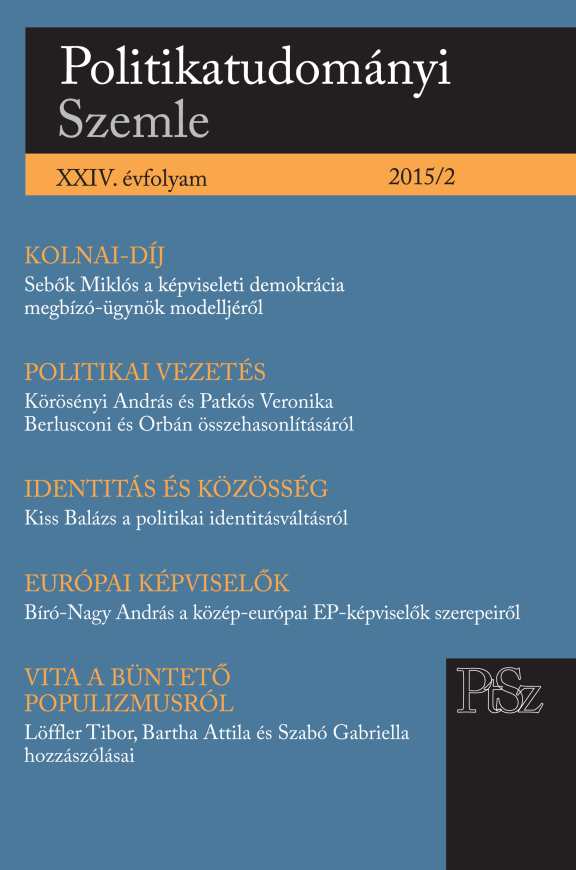Közép-európai EP-képviselők és szerepeik.
Central European MEPs and Their Roles.
Behavioural Strategies in the European Parliament
Author(s): András Bíró NagySubject(s): Politics / Political Sciences
Published by: MTA Politikai Tudományi Intézete
Keywords: European Parliament; elite research; political roles; Central Eu- ropean MEPs; political behaviour;
Summary/Abstract: This paper aims to help better understand the role orientations of the Central European Members of the European Parliament, the factors that influence their strategies, and the relationship between their roles and activities. Based on the results of a quantitative survey research into MEPs from the Czech Republic, Hungary, Poland, Slovakia and Slovenia in the 2009–2014 term, I argue that it is possible to explain the political roles of MEPs by the attitudes towards poli- tics and policy, and the territorial focus of representation (European vs. national level). Due to the internal mechanisms of the EP and its position in the multi-level governance system of European politics, these two dimensions represent dilemmas that all MEPs face, when it comes to the efficient use of their scarce resources: time and energy. This study demonstrates that sociodemographic factors, attitudes and political socialization all have an influence on what roles MEPs choose. The length of time spent in the EP, age, previous political experience, party affi liation, left-right self-definition and career am- bitions are important factors that can explain the political behaviour of MEPs. The Central European MEPs’ focus on politics vs. policy and European vs. na- tional arena has different roots. Orientation towards politics and policy largely depends on prev ious polit ical ex per ience and f ut ure career ambit ions. Focus on the European or the national level is best explained by age, party affiliation and left-right self-definition.
Journal: Politikatudományi Szemle
- Issue Year: XXIV/2015
- Issue No: 2
- Page Range: 91-119
- Page Count: 29
- Language: Hungarian

